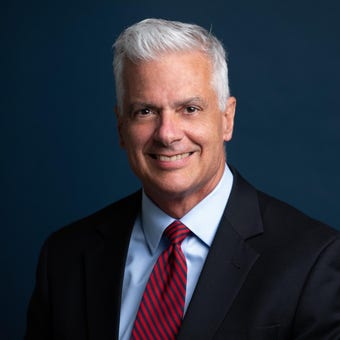Devos on SCOTUS siding with religious schools on aid: Huge victory for parents and students
Former Trump Education Secretary Betsy Devos on ruling that a Maine tuition assistance program violated the First Amendment's Free Exercise Clause for excluding religious schools from eligibility.
Students should never be denied the benefit of their education tax dollars simply on account of religion. But that’s precisely what had been happening. Tuition assistance to attend private institutions had been available to Maine school children, but the state program excluded those attending religious schools.
Two Maine parents believed they should be able to use their education tax dollars in the state's voucher program to send their children to religious schools. They sued to overturn a 1980 decision by Maine's attorney general denying families that option. The Supreme Court agreed with Maine's parents in its 6-3 decision, delivering an undeniable victory for religious liberty.
Chief Justice John Roberts wrote in the court’s opinion in Carson v. Maykin: "Regardless of how the benefit and restriction are described, the program operates to identify and exclude otherwise eligible schools on the basis of their religious exercise."
The ruling for the parents also represents a huge victory for the parental school choice movement. It clears the way for programs that offer parents more control over their children’s education and more alternatives to failed educational bureaucracies focused on preserving their monopolies.
The Carson v. Maykin decision could not have come soon enough. Prolonged COVID lockdowns forced many parents to reevaluate their children's education and move them out of public schools. The preliminary research shows that lockdowns and restrictions may cost students $61,000 in lifetime earnings and the economy about $150 billion a year.
Parental school choice programs allow families to select what type of learning environment works most effectively for their child. Private school tuition is beyond the financial reach of many families, unfortunately, and that’s why expanding parental school choice programs will make a critical difference in providing more options.
Increased access to parental school choice improves academic outcomes, including test scores and graduation rates, according to multiple studies. An Urban Institute study, for example, finds that students who participate in voucher programs are more likely than their peers to graduate high school and attend college. Greg Forster who, as part of a Friedman Foundation analysis, evaluated dozens of studies on school choice, found "the empirical evidence shows that choice improves academic outcomes for participants and public schools, saves taxpayer money, moves students into more integrated classrooms, and strengthens the shared civic values and practices essential to American democracy."
The contrast between failing public schools and the strong academic success of parental school choice program has become widely recognized by the American public. That explains why expanding school choice programs enjoys support among 74 percent of voters.
If widespread public support and strong results weren’t enough to encourage state legislatures to pursue parental choice programs and expand current programs, the budgetary figures should present a compelling financial incentive. The federal taxpayer spends more than $15,000 per student per year, according to the Reason Foundation. Washington, D.C. taxpayers spend more than $31,000 per student per year. Pouring money into failed public school systems instead of investing directly in students has been a disastrous course.
CLICK HERE TO GET THE OPINION NEWSLETTER
In an analysis of 28 studies examining the fiscal impact of parental school choice programs for the taxpayers and public schools, and 25 found that school choice programs save taxpayers money. Just three studies found that school choice programs are revenue neutral, and no study found that school choice programs have a negative fiscal impact.
CLICK HERE TO GET THE FOX NEWS APP
The Supreme Court’s decision is likely to have the impact of overturning discriminatory laws in several other states that similarly prohibit the distribution of funds to religious schools, even if all other schools are eligible for state funding. As a byproduct of restoring religious liberty, parents and taxpayers will get more for their money.
Legislators who are paying attention have an opportunity to build a better future for the children of their state and a better political future for themselves.













































